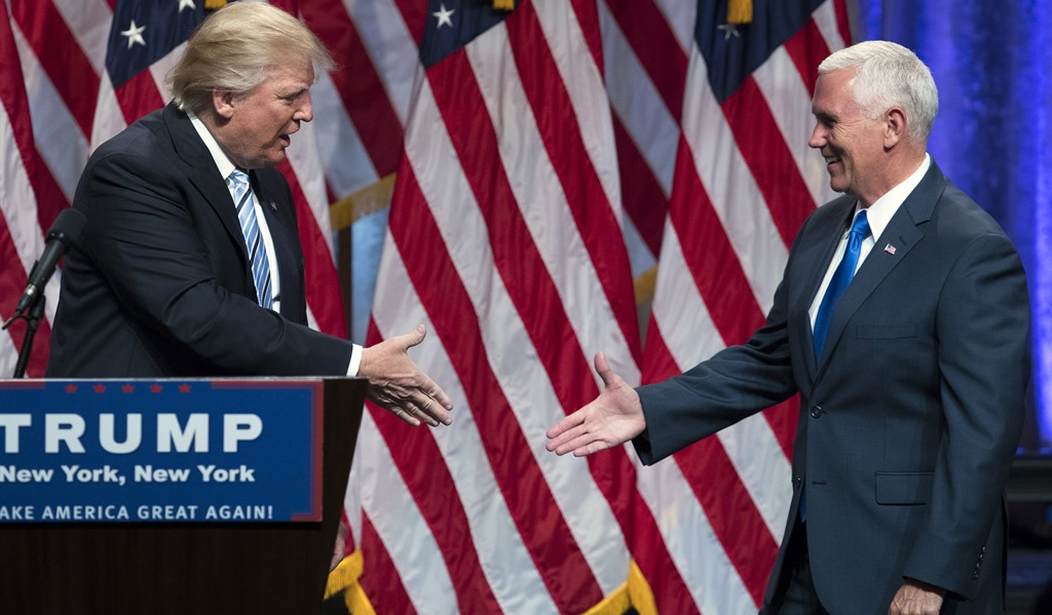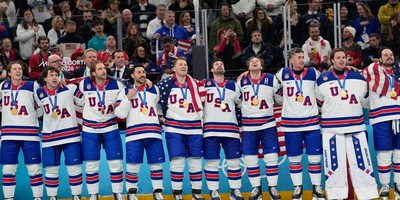Editor's Note: This piece is co-authored by Andrew Shirley.
A man was once asked if he was interested being nominated for the vice presidency; he replied, “Son, I’m opposed to vice in all its forms.” Over the years, however, the position John Adams once derided as “the most insignificant office ever the invention of man contrived or his imagination conceived” has grown politically, if not substantively.Many years ago, an old friend Bob Novak, the feared nationally syndicated columnist, told the elder of us how in 1960 when John F. Kennedy selected Lyndon Johnson as his running mate, his opinion of the Democratic presidential nominee changed dramatically.
Like his peers of the era, Novak assumed Kennedy was a rich, lightweight, playboy with little self-confidence or inner direction. When he selected LBJ as his vice presidential running mate, his superior in the Senate, in politics, in the Democratic Party and in Washington, Novak’s estimation of JFK grew by leaps and bounds. He knew then and there he’d been wrong about Kennedy and realized the Massachusetts senator had been far deeper, more reflective and had more self-confidence than Novak appreciated at the time.
In 1968, Richard Nixon confided to a friend at the Republican convention in Miami Beach he wished he could just run alone. He wasn’t sympathetic of the position, having eaten a lot of crap as Dwight Eisenhower’s second banana; he was simply contemptuous of the position and later, the man he chose, Spiro Agnew. Nixon was not alone. Woodrow Wilson’s vice president, Thomas Marshall, once waited a year and half just to get a meeting with President Wilson. Nixon was insecure and Wilson was arrogant.
In 1980, at the Detroit GOP convention, the sentimental favorite among many conservatives was congressman Jack Kemp of New York. Kemp was a real up and comer and many saw him as the natural second to Ronald Reagan, but he was also young, brash and undisciplined, unusual for a former pro football quarterback who’d been weaned on discipline. Ronald and Nancy Reagan were conflicted. They wanted to take Senator Paul Laxalt, their close friend, but it simply didn’t make sense as his state of Nevada had legalized gambling and prostitution. At a time when pro family and pro social conservatives were on the rise in the GOP, picking Laxalt would have risked alienating them. The Reagans decided on a full court press for former president Gerald Ford in a last minute attempt which became known as the “co-presidency.” For a few hours, everybody in Detroit engaged in the wholly impractical and unconstitutional “Dream Ticket” fantasy. At the 11th hour, though it collapsed. Fortunately.
Recommended
With options narrowing, the Reagans really did not want Ambassador George H.W. Bush, whom they considered a choker after his disastrous performance in the Nashua debate and Reagan was especially mad at Bush for mocking his revolutionary tax cut plan as “voodoo economics.” Plus, culturally, they had little in common.The Reagans were not nouveau-riche but the Bushes were old money, with blood as blue as the Connecticut River. Many knew the pursuit of Ford was simply because the Reagans did not want to pick what many saw as the logical choice, Bush.
Still, to the end, even after the co-president deal fell through, Reagan only reluctantly called Ambassador Bush. Bush was in many ways his senior in the establishment wing of the party and Reagan knew he needed a unified convention of moderate establishmentarians and outsiders/conservatives if he was to have a choice against the incumbent Jimmy Carter. So he swallowed hard and called Bush. Nancy Reagan---after all the age slurs emanating from the Bush campaign over the previous two years—had to swallow even harder. She really didn’t like the Bushes.
The Reagans were so dubious of Bush’s debating skills, they scotched a planned gab fest between Bush and Walker Mondale. In another sign of confidence, every primary opponent of Reagan’s addressed the crowd in Joe Louis Arena in Detroit. The same cannot be said of Cleveland as not even the hometown governor, John Kasich, will be attending much less speaking to the GOP convention.
In 1988, George H.W. Bush could have chosen the well qualified Bob Dole or the now more seasoned Kemp, but chose instead the wholly ill-prepared Dan Quayle, senator of Indiana. Bush wanted someone he could control and someone who did not intimidate him. At the press conference trying to defuse the controversy stirred up by the choice of the young and immature Quayle, the much esteemed Jim Baker was asked sarcastically by a reporter if Bush chose Quayle simply because he couldn’t chose one of his own sons. Baker rolled his eyes and smiled. Bush failed his own moment of truth.
The convention city of Cleveland is also the moment of truth for Trump. In choosing Mike Pence, a somewhat respected if also little accomplished governor, who won’t “steal the show,” from Trump, he has signaled his own political insecurities. Had Trump chosen Newt Gingrich---who outranks Trump in terms of party tenure and successes and place in history---that would have signaled foresight and self-confidence. The GOP is still Reagan’s party and choosing Gingrich would have also made sense as he is the most notable heir to the Reagan legacy but again, this may have been intimidating to Trump. But Pence, who despite some festering problems with movement conservatives, won’t give Trump any problems either. Pence, while a good man, has never been associated with any great idea or cause. While in the U.S. House, he was known as a get along, go along sort of congressman. There is little chance of Pence overshadowing Trump.
The choice of a running mate is not inconsequential as many commentators falsely suggest. It is in fact the most important decision of a nominee and a tell all about the disposition and makeup of the candidate. Trump’s first decision is a good “tell,” an indication of his own psychological framework.
Craig Shirley is a Reagan biographer and a New York Times bestselling author. Andrew Shirley is a Navy veteran and a Master’s degree candidate.

























Join the conversation as a VIP Member